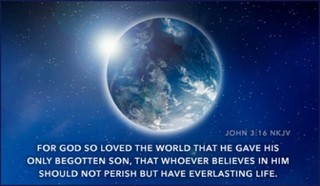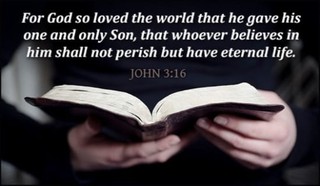
- Recent Translations
- All Translations
John 3:2
Share
Settings
John 3:2 Meaning and Commentary
The same came to Jesus by night
Through fear of the Jews, of being reproached or turned out of his place by them; or through shame, that such a doctor as he was, should be known to go to Jesus of Nazareth, to be instructed by him; or lest he should offend any of his brethren of the sanhedrim: though some things may be said in favour of this conduct of Nicodemus; for since Christ would not trust himself with those that believed in him upon seeing his miracles, ( John 2:23 John 2:24 ) , among whom Nicodemus seems to be; or would not admit them into his company, and enter into a free conversation with him; it was necessary, that if he would have any discourse with him, that he should take this method; and if it was the same night, in which he had seen his miracles in the day, as is probable, he took the first opportunity he could, and which shows great readiness and respect; add to which, that it was very common with the Jewish doctors, to meet and converse together, and study the law in the night.
``R. Aba rose, (aylyl twglpb) , "in the middle of the night", and the rest of the companions, to study in the law F5.''And it is often F6 said of R. Simeon ben Joehal, and Eleazar his son, that they sat in the night and laboured in the law; and it was reckoned very commendable so to do, and highly pleasing to God: it is said F7,
``whoever studies in the law in the night, the holy blessed God draws a thread of mercy upon him in the day:''and likewise F8, that
``every one that studies in the law in the night, the Shekinah is over against him.''But it seems, the Babylonian Jews did not study in the law in the night F9: it might seem a needless question to ask, whether Nicodemus came alone, or not, were it not that according to the Jewish canon F11 a scholar might not go out in the night alone, because of suspicion:
and said unto him, Rabbi;
a title which now greatly obtained among the Jewish doctors, and of which they were very fond; (See Gill on Matthew 23:7). It comes from a word, which signifies great and large; and was used by them, to suggest the large compass, and great plenty of knowledge they would be thought to have had; and best becomes and suits with our Lord Jesus Christ, in whom all the treasures of wisdom and knowledge are: salutations among the Jews, were forbidden in the night F12;
``says R. Jochanan, it is forbidden a man to salute his neighbour in the night, lest it should be a demon:''but here was no such danger; nor was this salutation made in the street, and in the dark, which the canon seems to respect:
we know that thou art a teacher come from God;
the Jews expected the Messiah as a teacher, which they might learn from many prophecies, as from ( Isaiah 2:2 Isaiah 2:3 ) ( 48:17 ) ( 61:1 ) . Upon the first of which, and on that passage in it, "he will teach us of his ways", a noted commentator
F13 of theirs has this remark;
``(hrwmh) , "the teacher", he is the King Messiah.''And the Targum on ( Joel 2:23 ) paraphrases the words thus:
``O ye children of Zion, rejoice and be glad in the word of the Lord your God, for he will return (Nwkplm ty) , "your teacher" to you.''And Nicodemus acknowledges Jesus as such; and as one that did not come, or was sent by men, as their doctors were; nor did he come of himself, as false teachers did; but he came from God, and had his mission and commission from him: and this was a known case, a clear point, not only to himself, but to many of the Jews; and even to some of his brethren, the members of the sanhedrim; who upon hearing of, and seeing the miracles done by Christ, might meet and converse freely together about him; and give their sentiments of him; and might then agree pretty much in this at that time, that he was at least a prophet, and some extraordinary teacher, whom God had sent among them; and Nicodemus coming directly from them, repeats his own sense and theirs, supported by the following reason:
for no man can do these miracles that thou dost, [except] God be with
him:
referring to the miracles he had done at the passover in Jerusalem, very lately; see ( John 2:23 ) . And which, though they are not particularly mentioned, may be concluded to be such, as the dispossessing of devils, the curing of all manner of diseases by a word, or touch, from what he at other times, and elsewhere did. Miracles were expected by the Jews, to be wrought by the Messiah, and many believed in Jesus on this account; see ( John 6:14 ) ( 7:31 ) ; though the modern Jews deny it to be necessary, that miracles should be done by the Messiah F14; but Nicodemus, and other Jews, thought otherwise, and considered the miracles of Christ as such, as could never be done by man, nor without the presence and power of God; and concluded that he was with God, and God with him, and was the true Immanuel, who is God with us.
F5 Zohar in Exod. fol. 84. 1.
F6 Ib. fol. 8S. 2. in Lev. fol. 5. 3, 4. & 10. 1. & passim.
F7 T. Bab. Chagiga, fol. 12. 2. Avoda Zara, fol. 3. 2. Maimon. Hilch. Talmud Tora, c. 3. sect. 13.
F8 T. Bab. Tamid. foi. 32. 2.
F9 T. Bab. Taanith, fol. 9. 2.
F11 T. Bab. Cholin, fol. 91. 1. Piske Tosephot Pesach, art. 12. & Maimon. Hilch, Deyot. c. 5. sect. 9.
F12 T. Bab. Sanhedrin, fol. 44. 1. & Megilla, fol. 3. 1. & Piske Tosephot Megilla, art. 4. & in Yebamot, art. 238.
F13 R David Kimchi in loc.
F14 Maimon. Hilch. Melacim, c. 11. sect. 3.
John 3:2 In-Context
Footnotes 1
- [a] Gk [him]

